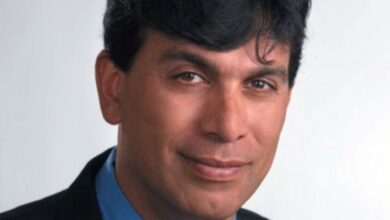Mukesh Bansal on Tech, Entrepreneurship, and India’s Future

Mukesh Bansal, founder of Myntra and co-founder and CEO of fitness service provider Cult.fit calls for inclusive growth and shares role of AI in shaping India’s economy.
Serial entrepreneur Mukesh Bansal, renowned as the founder of the successful e-commerce platform Myntra and as the co-founder and CEO of the popular fitness service provider Cult.fit, recently engaged in a conversation with ET Edge Insights during the 8th Edition of the Global Business Summit held in New Delhi.
Despite holding an engineering background, Mukesh initially diverted from the typical career trajectory by starting his professional journey as a systems analyst at Deloitte. Subsequently, he made the bold move of relocating to Chicago to pursue work opportunities.
During the period from 1999 to 2007, Mukesh immersed himself in the startup scene of the Bay Area, where he contributed to the growth of four early-stage companies. Notably, two of these startups operated in the e-commerce domain, while the other two focused on enterprise software solutions. In 2007, Mukesh made a pivotal decision to leave his job in the United States and return to India, marking the beginning of his transformative journey in the country’s business landscape.
Myntra, India’s e-commerce site was acquired in 2014 for $375 million by Flipkart.
Transitioning to our interaction Mukesh reminisced about the absence of a conducive ecosystem in India when he returned from Silicon Valley 15 years ago.
“However, today there is a huge transformation. There are substantial support and opportunities available to entrepreneurs today. The caliber of innovations emerging in the contemporary landscape is commendable,” he says.
Expressing his optimism for future innovation, Mukesh underscores a bullish outlook for the next decade.
Speaking on the topic of Generative AI, Mukesh highlights its potential as a significant technological shift of our times.
While acknowledging the current hype surrounding Gen AI, he suggests that the fundamental changes necessary for its practical application will unfold in the coming years.
“It is important that we maintain the ‘human in the loop’ alongside technological advancements to ensure productive outcomes with Gen AI,” Mukesh says.
Addressing the prevalent sentiments vacillating between ‘fear and hope’ regarding technological advancements, Mukesh offeres a balanced perspective.
He acknowledges the historical trajectory of technological shifts over the past century, largely characterized by positive impacts despite inevitable disruptions. Mukesh ponders the potential role of AI as an enabler for India’s GDP growth to reach its full potential.
When asked about his approach to script a new future, Mukesh outlines his focus on leveraging his expertise in building companies and nurturing deep tech opportunities.
“I have a desire to collaborate for India’s advancement, particularly advocating for inclusive growth that extends to tier 3 and 4 towns,” he says.



